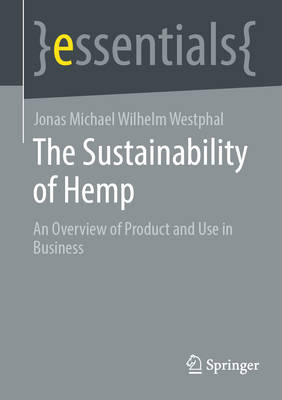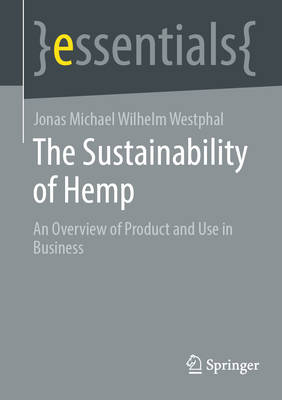
Je cadeautjes zeker op tijd in huis hebben voor de feestdagen? Kom langs in onze winkels en vind het perfecte geschenk!
- Afhalen na 1 uur in een winkel met voorraad
- Gratis thuislevering in België vanaf € 30
- Ruim aanbod met 7 miljoen producten
Je cadeautjes zeker op tijd in huis hebben voor de feestdagen? Kom langs in onze winkels en vind het perfecte geschenk!
- Afhalen na 1 uur in een winkel met voorraad
- Gratis thuislevering in België vanaf € 30
- Ruim aanbod met 7 miljoen producten
Zoeken
The Sustainability of Hemp
An Overview of Product and Use in Business
Jonas Michael Wilhelm Westphal
€ 27,45
+ 54 punten
Omschrijving
The cannabis plant, as a hemp, could contribute better than previously thought to achieving the goals of the UN Sustainable Development Report, the so-called Agenda 2030 and its 17 SDGs (Sustainable Development Goals). From a health perspective, its medicinal use is the main focus, but it is also used in cosmetic products and in food offerings for humans and animals. In the context of the increasing climate crisis, hemp helps especially to cope with the CO2 problem: in agriculture by binding the CO2 similar to reforestation, in industry as a recyclable raw material substitute for example as a plastic substitute, in clothing, in technology or in construction. At the moment, unfortunately, the immense prices and high demand show a different picture, from citizens who want to but can't or aren't allowed to, from farmers who have to overcome immense bureaucratic hurdles to an industry that is deterred by complex rules and laws to invest. The essential shows how this potential could also be realized in Germany.
Specificaties
Betrokkenen
- Auteur(s):
- Uitgeverij:
Inhoud
- Aantal bladzijden:
- 66
- Taal:
- Engels
- Reeks:
Eigenschappen
- Productcode (EAN):
- 9783658418182
- Verschijningsdatum:
- 30/07/2023
- Uitvoering:
- Paperback
- Formaat:
- Trade paperback (VS)
- Afmetingen:
- 148 mm x 210 mm
- Gewicht:
- 108 g

Alleen bij Standaard Boekhandel
+ 54 punten op je klantenkaart van Standaard Boekhandel
Beoordelingen
We publiceren alleen reviews die voldoen aan de voorwaarden voor reviews. Bekijk onze voorwaarden voor reviews.









